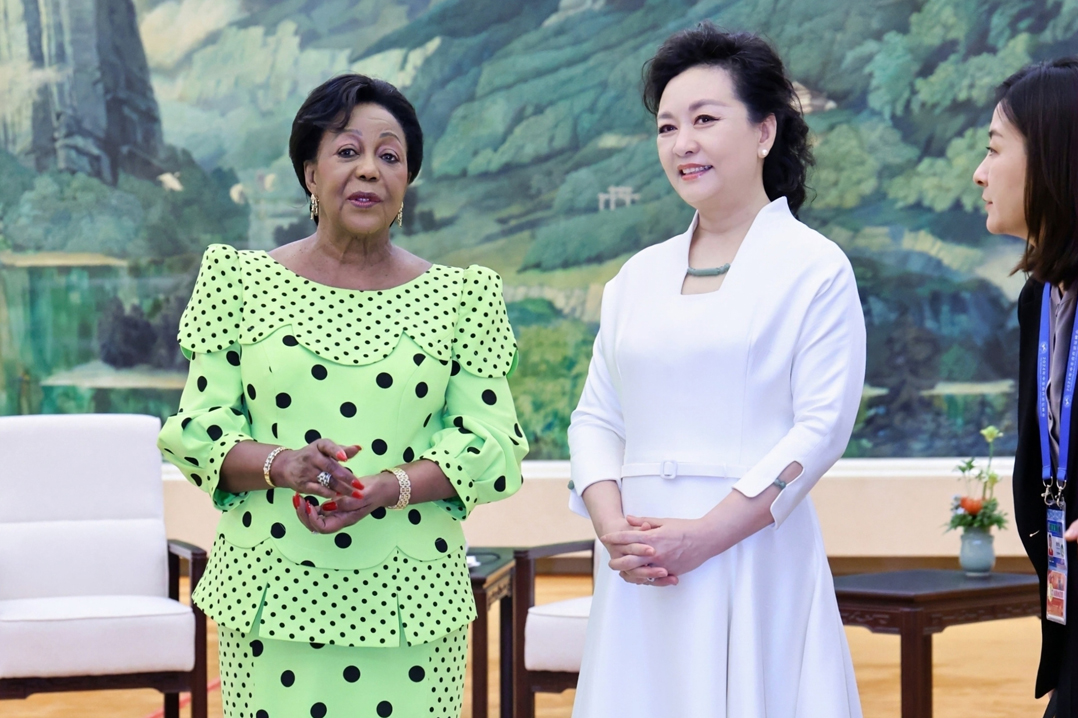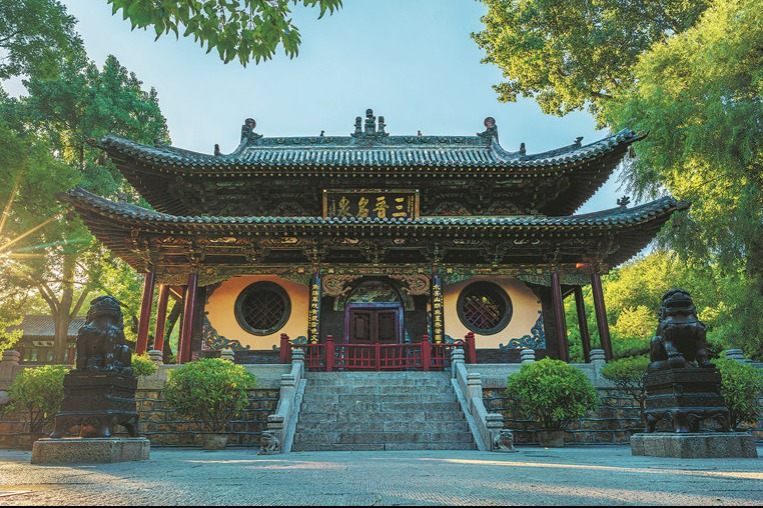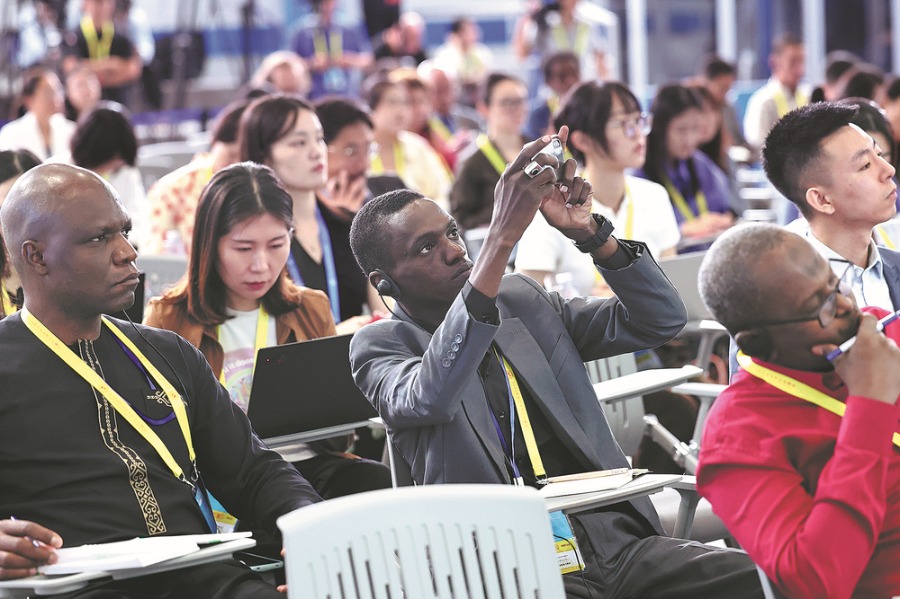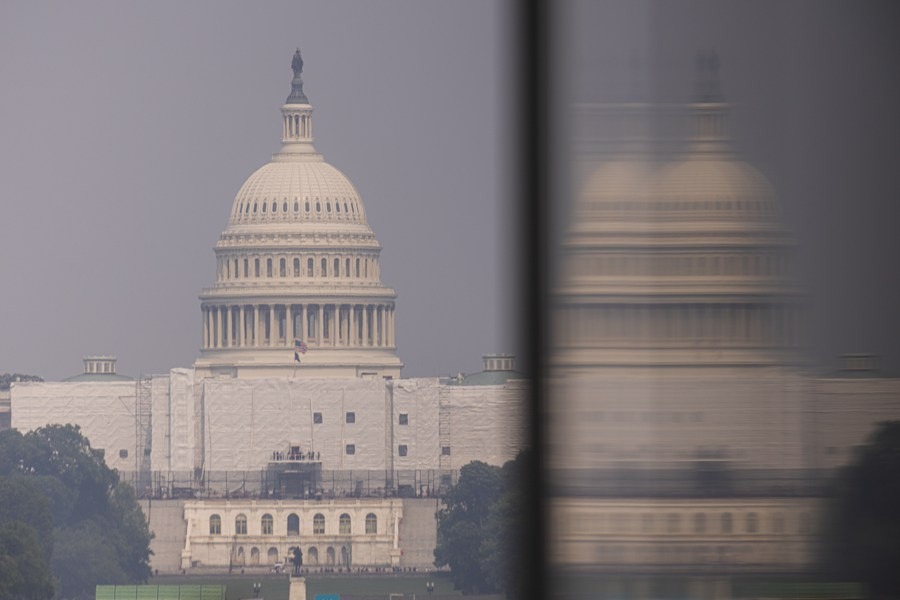Modern corporate system needs improvement


Editor's note: Promoting high-quality development has become the main theme of China's economic and social growth. China's efforts to develop new quality productive forces will create new opportunities for win-win development and expand new practices in economic governance. Three experts share their views on the issue with China Daily.
The seventh session of the 14th National People's Congress Standing Committee passed the revised Company Law on Dec 29 last year. The law, which will take effect on July 1, is aimed at standardizing corporations, protecting the legitimate rights and interests of companies, shareholders, employees and creditors, improving the modern enterprise system with Chinese characteristics, promoting the entrepreneurial spirit, maintaining the socioeconomic order, and advancing the development of the socialist market economy in accordance with the Constitution.
To perfect the modern enterprise system with Chinese characteristics, it is essential to respect the autonomy of enterprises and adopt a problem-solving approach, tailoring policies based on the size, development stage and ownership nature of enterprises.
For State-owned enterprises, the goal should be to ensure market-oriented operations, take measures to synergize internal and external markets, and reduce administrative control. There is also a need to empower the SOEs, by granting them more autonomy and reducing regulatory constraints, and strengthen incentive mechanisms with a market-based compensation system, and link pay to performance through stock and other incentives. And promoting professional managers based on performance and ensuring the majority of employees are hired through a market-based process will help the SOEs to become more efficient and competitive.
Private enterprises, on their part, should adopt an approach based on the Negative List and urge the tax authorities to accord equal treatment to SOEs and private enterprises according to law. The higher authorities, meanwhile, should better protect private property rights and entrepreneurs' interests to help build an environment in which private businesses can thrive, and review and, if need be, revise or lift regulations hindering business operations to ensure equal market access for all and promote fair competition.
Also, to create more opportunities for private enterprises, local governments should refrain from resorting to protectionism, while improving management and services to support small and medium-sized enterprises and individual businesspersons.
Building a modern enterprise system with Chinese characteristics requires the Party's leadership in SOEs, improvement of governance mechanisms, and accountability for and supervision of State-owned capital. In this regard, it is essential to integrate the Party's leadership with corporate governance by establishing clear roles, responsibilities, and effective checks and balances.
Strengthening the structure of company boards and empowering the boards to be the primary decision-makers in business operations will improve governance, and establishing a regulatory system for mixed-ownership enterprises will enhance their efficiency. And to attract and retain talents, private enterprises should introduce term-based contracts, flexible and market-oriented compensation, and various long-term incentive programs for executive teams.
Efforts should be made to encourage private enterprises to establish a modern corporate governance structure by improving legal person governance, regulating shareholder behavior, strengthening internal oversight and establishing robust risk prevention mechanisms.
The Party should lead these initiatives, while helping improve management standards, for example, by separating corporate property from the personal and family property of shareholders, and making clear the corporate property rights structure. While a risk-assessment and alarm system should be established to provide early warnings against developments that could seriously harm enterprises' operations and affect social stability, private enterprises should strengthen their risk-prevention and management mechanisms covering areas such as strategic planning, investment and financing, and market operations.
And the role of Party organizations in private enterprises should also be leveraged to promote legal education among the employees of private enterprises, fostering a corporate culture of integrity and honesty, and enhancing the operational and management level of private companies.
Furthermore, in order to build the right environment for promoting globally competitive high-tech innovations, China must adhere to a policy of both "going global" and "bringing in", which would involve expanding scientific and technological exchanges and cooperation with other economies, building mutually beneficial partnerships, and participating in global high-tech governance.
China should also initiate major global scientific plans and projects, make its national science and technology plans more transparent, establish a global scientific research fund, carry out scientist-exchange programs, establish international scientific and technological organizations in China and employ foreign scientists in Chinese scientific and technology institutions.
To promote globally competitive high-tech innovations, and attract and retain talents, both from home and abroad, China must further internationalize research, address researchers' practical concerns and properly handle pressing issues while introducing more open talent-recruitment policy to establish a world-class research and innovation hub.
It should also improve policies for temporary residence of foreign high-end and professional talents, enhance the permanent residence system for foreigners, as well as increase salaries and benefits, strengthen social security and grant tax incentives to build a globally competitive and attractive environment for overseas scientists working in China.
To forge a globally competitive environment for high-tech innovation and establish an open, solid security foundation, continuous enhancement of high-tech security systems and risk-prevention mechanisms is necessary.
Moreover, it is important to coordinate the advancement of global cooperation and competition in the field of intellectual property rights.
Apart from better grasping the rules of technological operation in an open economy, filling the institutional gaps, and improving related legal systems and policy regulations, China also has to strengthen supervision, better safeguard the country's sovereignty, and beef up national security mechanisms.
The views don't necessarily represent those of China Daily.
The author is a researcher at the National Academy of Governance.
If you have a specific expertise, or would like to share your thought about our stories, then send us your writings at opinion@chinadaily.com.cn, and comment@chinadaily.com.cn.


































